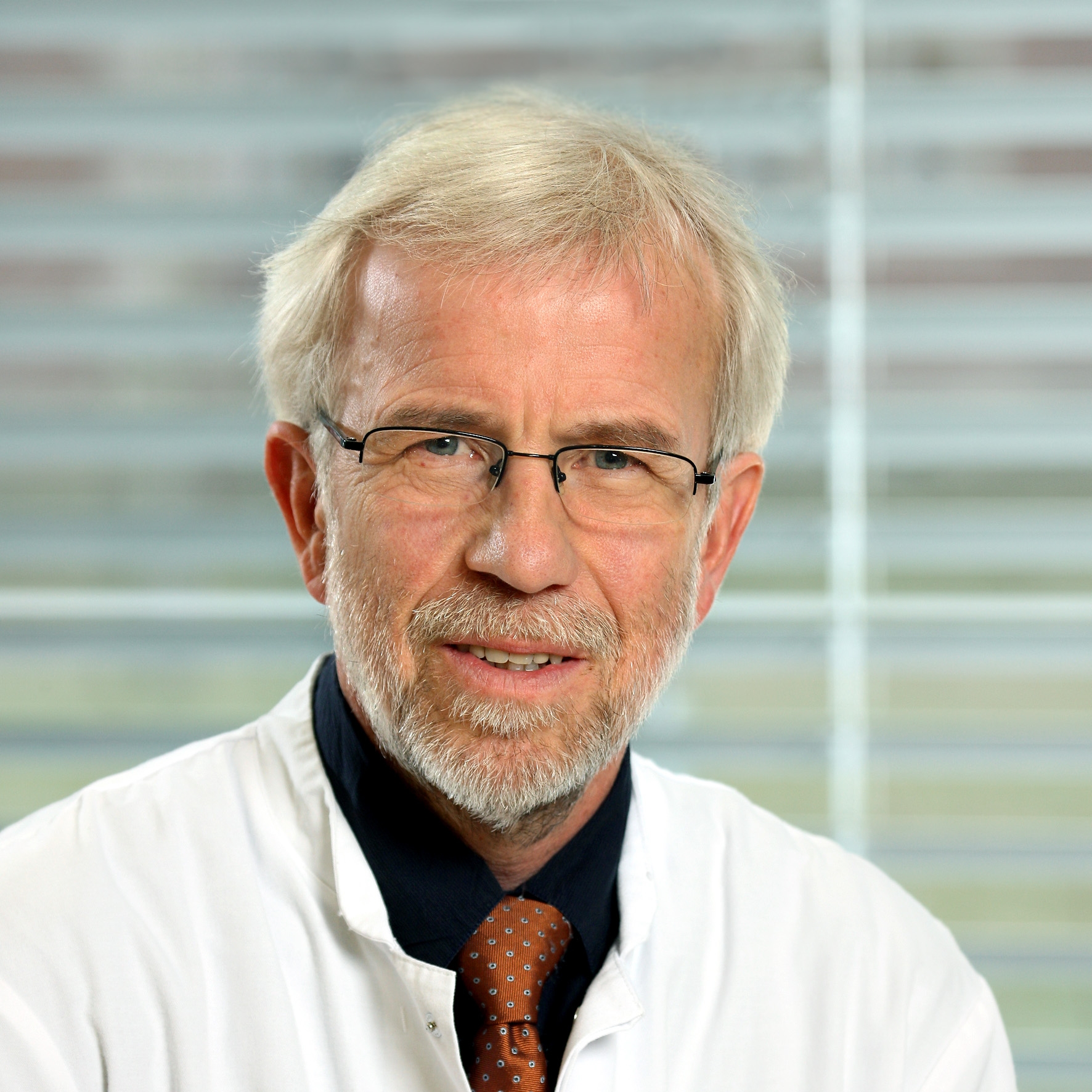1. Current Status, Position
Chairman of the Dept. of Hematology, Oncology, and Tumor Immunology at the HELIOS Clinic Berlin-Buch/Chairman of the DCGMA.
2. Education
- 1979-1981: Dept. of Experimental Pharmacology at the Free University of Berlin, FRG
- 1982: Ph.D. degree in Medicine, Free University of Berlin, FRG
- 1981-1988: Clinical resident in the Dept. of Hematology and Oncology, University Clinic Steglitz, Free University of Berlin, FRG
- 1988: Degree for specialisation in Internal Medicine
- 1989: Degree for specialisation in Transfusion Medicine
- 1990: Habilitation for Internal Medicine, Free University of Berlin, FRG
- 1992: Degree for specialisation in Hematology and Oncology
- December 1993-March 2001: Deputy Medical Director, Dept. of Medical Oncology and Applied Molecular Biology (renamed 1996: Dept. of Hematology, Oncology, and Tumor Immunology), Robert Rössle Clinic, Charité, Campus Berlin-Buch, FRG
- Since 1994: Full Professor of Hematology/Oncology and Applied Molecular Biology with unlimited tenure, Humboldt University of Berlin
- Since April 2001: Medical Director and Head of the Dept. of Hematology, Oncology, and Tumor Immunology, Robert Rössle Clinic, HELIOS Klinikum Berlin-Buch, Charité, Campus Berlin-Buch, FRG
- 1994: Founding member of the "European Group for the Immunological Characterization of Leukemias" (EGIL)
- Since December 1999: in the board of the Drug Commission of the German Medical Association (DCGMA)
- 2002-2005: Full member and chairman of the Panel of Experts at the German Ministry of Health dealing with off label use of drugs
- Since 2004: Expert for risk management at the European Medicines Agency (EMEA); member of the Scientific Advisory Group (SAG)-Oncology
- Since 2006: Chairman of the Drug Commission of the German Medical Association (DCGMA)
3. Research Area
Prof. Dr. Ludwig focuses his work on the following research areas:
- Biologic determinants of treatment response in acute leukemias (e.g., expression and function of apoptosis-related regulatory molecules, minimal residual disease); functional genomics both in translational research and model systems of acute leukemia (coordinator of the Acute Leukemia Consortium within the NGFN, National Genome Research Net);
- Innovative treatment strategies in oncology (e.g., bispecific monoclonal antibodies, targeted therapy);
- Pharmacovigilance, especially postmarketing surveillance; international harmonization of drug regulation/approvals;
- Issues of medical ethics and professional norms regarding academic-industry collaboration.

























